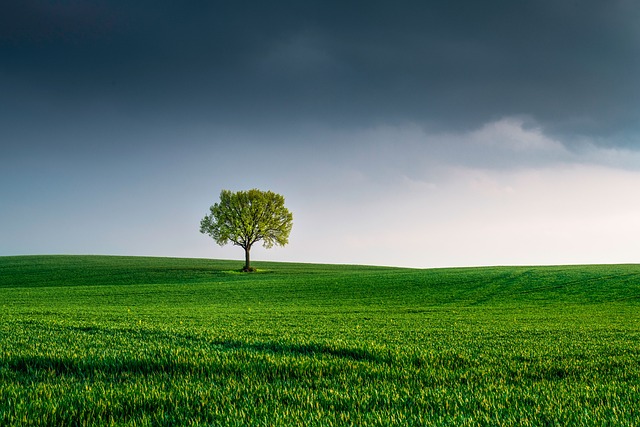In a world where our environment is constantly facing threats, Earth Day reminds us of the critical importance of protecting our planet. It’s a day when we pause to reflect on the actions we can take, both big and small, to create a greener and more sustainable future for generations to come. And what better way to channel our thoughts and ideas than through the transformative power of writing? So, grab your pen and paper, or flex your typing fingers, as we delve into a world of Earth Day writing prompts that will not only inspire creativity but also ignite the flame of environmental consciousness within us. Together, let’s embark on a journey where words have the potential to make a meaningful impact on our planet, one sentence at a time.
Contents
- Why Earth Day Writing Prompts Matter for a Greener World
- Discovering Your Passion for Environmental Writing
- Using Writing as a Tool for Environmental Awareness
- Taking Action Through Writing: Inspiring Change
- Empowering Students to Take the Lead in Sustainability Writing
- Exploring the Intersection of Literature and Environmental Activism
- Writing Prompts for a Sustainable Future
- Encouraging Green Practices Through Powerful Words
- Frequently Asked Questions
- Concluding Remarks
Why Earth Day Writing Prompts Matter for a Greener World
Writing prompts have always been a powerful tool to ignite creativity and encourage expression. However, when it comes to Earth Day, these prompts serve a greater purpose. They offer a platform for individuals, both young and old, to explore their thoughts, ideas, and emotions about the environment, sustainability, and the urgent need for a greener world. By providing a space for contemplation, Earth Day writing prompts enable individuals to deepen their understanding of environmental conservation, while inspiring them to take action.
Through engaging with Earth Day writing prompts, people can generate unique perspectives and shed light on various environmental issues. The act of articulating thoughts through writing helps individuals not only to organize their ideas but also to communicate them effectively. By sharing their creations, they contribute to a broader conversation surrounding environmental awareness and inspire like-minded individuals to join the cause. Whether through poetry, essays, stories, or even blog posts, using writing prompts as a medium allows individuals to unleash their creativity while advocating for a greener world.
Why Earth Day writing prompts matter:
- Encourage critical thinking: Writing prompts prompt individuals to reflect deeply on environmental issues, encouraging critical thinking and helping them develop well-rounded perspectives.
- Spark creativity: By offering unique writing prompts, individuals are encouraged to think creatively and find innovative solutions that benefit the planet.
- Foster empathy: Writing about the environment helps individuals develop a sense of empathy towards the Earth and all living beings, strengthening their commitment to making a positive change.
- Promote education: Earth Day writing prompts in educational settings promote environmental education, allowing students to learn about sustainability, climate change, and the importance of conservation.
- Inspire action: Writing prompts help individuals develop actionable ideas that drive positive change and inspire others to take part in creating a greener world.
Discovering Your Passion for Environmental Writing
Benefits of Environmental Writing
can be a transformative experience that allows you to combine your love for writing with your commitment to the planet. By engaging in this form of writing, you can make a significant impact on environmental issues while also honing your skills as a writer. Here are some key benefits of exploring environmental writing:
- Creating Awareness: Through your writing, you have the power to educate and inform others about pressing environmental issues. By raising awareness, you can influence others to take action and make a positive difference in the world.
- Inspiring Change: Environmental writing has the potential to inspire change in individuals, communities, and even policy-makers. Your words can motivate people to adopt sustainable practices, support environmental initiatives, and demand responsible environmental policies.
- Connecting with Nature: Immersing yourself in environmental writing allows you to deepen your connection with nature. As you explore various topics related to the environment, you’ll find yourself spending more time outdoors, observing biodiversity, and truly appreciating the wonders of our planet.
Tips for Exploring Environmental Writing
If you’re curious about environmental writing and want to dive in, here are some useful tips to help you get started:
- Read Widely: Familiarize yourself with a variety of environmental literature, essays, and articles to gain inspiration and enhance your understanding of key issues.
- Research Thoroughly: To write effectively about the environment, you need a solid knowledge base. Thoroughly research scientific studies, statistics, and local environmental news to ensure accuracy in your writing.
- Find Your Niche: Environmental writing is a vast field, so find the specific aspect or topic that excites you the most. It could be climate change, wildlife conservation, sustainable agriculture, or any other area that resonates with your interests.
Using Writing as a Tool for Environmental Awareness
Why should we use writing as a tool for environmental awareness?
Writing has the power to reach a wide audience and cultivate a sense of responsibility towards the environment. It allows us to convey complex ideas, educate others, and inspire action. By harnessing the written word, we can explore environmental issues, share stories of nature’s beauty, and provide practical solutions to create a sustainable future. Here are some ways writing can be used to raise environmental awareness:
- Blogging: By starting a blog, you can share your knowledge, experiences, and ideas with a global audience. Write about ways to reduce waste, highlight endangered species, or discuss the importance of sustainable agriculture. Engage readers through thoughtful and well-researched content.
- Op-Eds and articles: Write thought-provoking pieces for newspapers, magazines, or online publications. Use these platforms to highlight pressing environmental issues or propose innovative solutions. Encourage readers to question their habits, advocate for change, and collaborate with others to protect our planet.
- Social media: Leverage the power of social media platforms to spread environmental awareness. Craft compelling messages, share engaging visuals, and use hashtags related to environmental causes. Encourage your followers to take small steps such as recycling, conserving water, or supporting eco-friendly businesses.
Writing is a potent tool for sparking conversations and igniting change. It can bring people together, amplify voices, and inspire collective action. So, let’s grab our pens and keyboards, and use our words to make the world a greener and more sustainable place for future generations.
Taking Action Through Writing: Inspiring Change
In today’s fast-paced world, writing has become a powerful tool for creating positive change and inspiring others. Whether it’s through thought-provoking articles, persuasive essays, or compelling stories, words have the ability to impact minds, ignite passion, and ultimately drive action. By harnessing the power of writing, individuals can catalyze movements, raise awareness, and spark the change they want to see in the world.
One of the key reasons why writing is such an effective medium for inspiring change is its ability to reach a wide audience. Blog posts, social media campaigns, and online articles have the potential to be shared and spread like wildfire, capturing the attention of thousands, if not millions, of readers. When carefully crafted, these words can evoke emotions, challenge perceptions, and empower individuals to take a stand. By sharing personal experiences, knowledge, and insights, writers can connect with readers on a deep level, fostering empathy and encouraging action.
So how can you harness the power of writing to inspire change? Here are some ideas:
- Choose Your Cause: Identify the issue or cause that you are most passionate about and want to bring attention to.
- Research and Educate: Dive into the topic, gather knowledge, and equip yourself with facts and statistics to support your writing.
- Engage and Empower: Write in a way that resonates with your audience. Use storytelling techniques, personal anecdotes, and relatable examples to make your writing impactful.
- Call to Action: Inspire your readers to take action by providing clear and actionable steps they can follow. Encourage them to join communities, sign petitions, donate to causes, or volunteer their time.
- Collaborate and Amplify: Partner with like-minded individuals, organizations, or publications to amplify your message and widen your reach. Together, you can create a powerful network of change.
Remember, your words have the power to inspire, motivate, and create lasting change. By taking action through writing, you can be a catalyst for a better world.
Empowering Students to Take the Lead in Sustainability Writing
At our school, we strongly believe in nurturing the next generation of environmental leaders. That’s why we have launched a groundbreaking program that empowers students to take the lead in sustainability writing. Through this initiative, we aim to inspire young minds to explore and advocate for a more sustainable future.
The program provides students with a platform to express their ideas, share their knowledge, and raise awareness about environmental issues through powerful and engaging writing. By encouraging students to use their voices, we believe that they can play a vital role in creating positive change in our local and global communities. Here are some key features of our innovative program:
- Writing Workshops: We offer interactive workshops where students learn about effective sustainability writing techniques, including storytelling, persuasive writing, and research skills.
- Mentorship: Students have the opportunity to receive guidance and feedback from experienced mentors who specialize in sustainability writing.
- Publishing Opportunities: We provide students with platforms to showcase their work, whether it’s through our school’s sustainability blog, local newspapers, or even national publications.
- Collaborative Projects: Our program encourages collaboration among students, fostering a sense of teamwork and allowing them to tackle sustainability issues from various angles.
Exploring the Intersection of Literature and Environmental Activism
Literature has long served as a powerful tool for exploring complex human emotions and societal issues. When it intersects with environmental activism, it becomes even more potent, offering a unique perspective on the urgent challenges our planet faces. Through the lens of literature, environmental activism takes on a narrative form, engaging readers in thought-provoking conversations and inspiring them to take action.
One way in which literature and environmental activism intersect is through the portrayal of nature as a central character. In many works of literature, the natural world is personified, allowing readers to develop a deeper connection with the environment. These vivid descriptions and personifications of nature not only serve to evoke emotions but also highlight the reciprocal relationship between humans and the environment. By emphasizing the importance of preserving nature, literature can motivate individuals to become environmental activists themselves.
Writing Prompts for a Sustainable Future
In a world where sustainability is becoming increasingly important, it is crucial for us to explore creative solutions and envision a future that is environmentally friendly. Here are some thought-provoking writing prompts that will inspire you to imagine a sustainable future:
- Powerful Eco-Cities: Envision a city that operates solely on renewable energy sources and boasts green infrastructure. Describe how it functions and the positive impact it has on the environment and its residents.
- Innovative Transportation: Picture a world where transportation is completely sustainable. Write a story about a new mode of transport or a revolutionary technology that minimizes carbon emissions and creates a more efficient and eco-friendly way of getting around.
- New Agricultural Frontiers: Imagine a future where farming has evolved to be sustainable and self-sufficient. Describe a cutting-edge agricultural practice or technology that ensures food security while minimizing resource consumption and environmental degradation.
By embracing these writing prompts, we can explore innovative ideas and inspire change towards a more sustainable future. Let your creativity flow and imagine the possibilities as we work together to build a world that is in harmony with nature, preserves our resources, and enriches our lives.
Encouraging Green Practices Through Powerful Words
As we strive towards a more sustainable future, the power of words should not be underestimated. Harnessing the strength of persuasive language can play a pivotal role in encouraging green practices and inspiring positive change within our communities. By using the right words, we can instill a sense of responsibility, urgency, and motivation in others to embrace eco-friendly habits. Here are a few ways in which powerful words can help promote green practices:
- Raising awareness: Effective communication can be a catalyst for change. By highlighting the environmental issues our planet faces and the importance of sustainable practices, we can encourage individuals to take action towards a greener world.
- Inspiring action: Words have the incredible ability to ignite the spirit of activism. By using language that empowers and motivates, we can inspire individuals to adopt eco-friendly behaviors such as reducing waste, conserving energy, and embracing renewable resources.
Moreover, words can also help create a sense of unity and community, fostering collaboration and collective efforts towards environmental stewardship. By emphasizing the positive impact of individual actions, we can build momentum and create a domino effect of green practices. is not about preaching or imposing but rather about creating a dialogue that sparks conscious choices for a sustainable future.
Frequently Asked Questions
Q: What are some Earth Day writing prompts to inspire people to write for a greener world?
A: Earth Day is the perfect occasion to reflect on our planet and the steps we can take to preserve it. Here are some writing prompts that can inspire you to make a positive impact on the environment through your words.
Q: Can you suggest a few Earth Day writing prompts for children?
A: Absolutely! For kids, we can encourage them to write about their favorite outdoor activity and the importance of caring for nature. They can also imagine what the world might look like in the future if we don’t take steps to protect it now. Another great prompt is to have them write a letter to Mother Earth, expressing their gratitude and promising to do their part in preserving the environment.
Q: How can writing for a greener world help create awareness?
A: Writing has a powerful ability to create awareness and spark conversations. By sharing your thoughts and experiences on environmental issues, you can inspire others to take action. Through storytelling, persuasive essays, and informative articles, writing can effectively convey the urgency of protecting our planet, leading to increased awareness among readers.
Q: What are some Earth Day writing prompts for adults?
A: For adults, writing prompts can delve deeper into environmental issues. They can explore ways to live a greener lifestyle, such as sharing personal experiences of adopting sustainable practices or advocating for eco-friendly policies. They can also discuss the connections between environmentalism and social justice, or explore the impact of climate change on their local communities.
Q: How can writing for a greener world make a difference?
A: Writing has a unique power to inspire and motivate change. By writing about environmental concerns, individuals can influence public opinion and encourage collective action towards a greener world. The power of words lies in their ability to touch hearts, provoke thought, and ignite a passion for change. Writing can serve as a catalyst for individuals to rethink their habits, make conscious choices, and strive for a sustainable future.
Q: Are there any additional tips for making the most out of Earth Day writing prompts?
A: Absolutely! Here are a few tips to unleash your creativity while writing for a greener world:
1. Research: Gather facts and statistics to support your ideas or to provide additional context.
2. Personal Stories: Share personal experiences or anecdotes to make your writing relatable and engaging.
3. Call to Action: Encourage readers to take practical steps towards a greener lifestyle or spread awareness about environmental issues.
4. Inspire Solutions: Offer creative solutions to environmental problems to inspire others who read your work.
5. Edit and Revise: Prioritize proofreading, editing, and revising your work to ensure clarity and coherence.
Remember, every word you write has the potential to inspire change and contribute to a greener world. Happy Earth Day!
Concluding Remarks
In conclusion, using writing prompts for Earth Day can help us raise awareness and inspire action for a greener and more sustainable world. Let’s write our way towards positive change!







